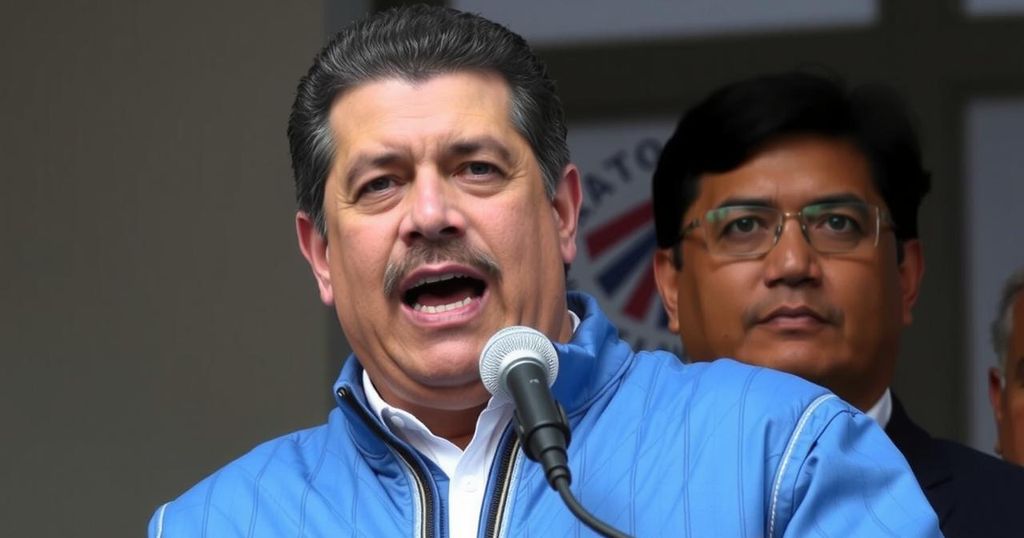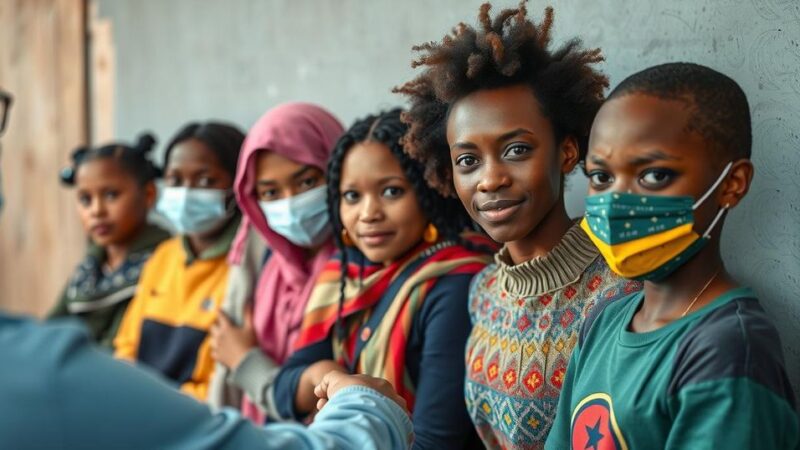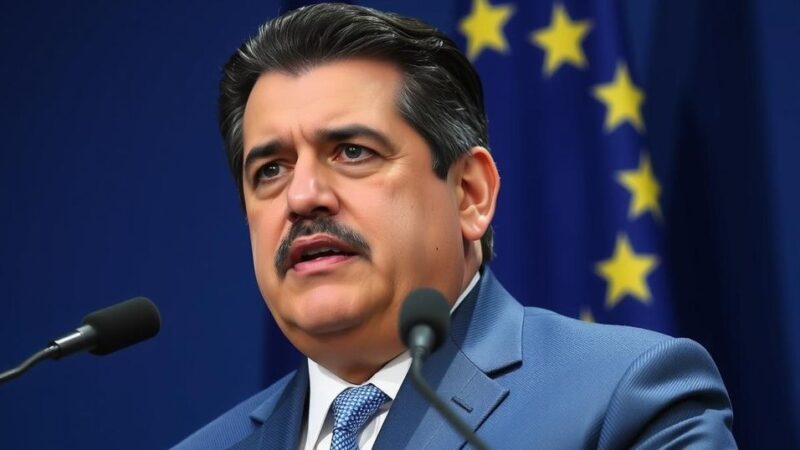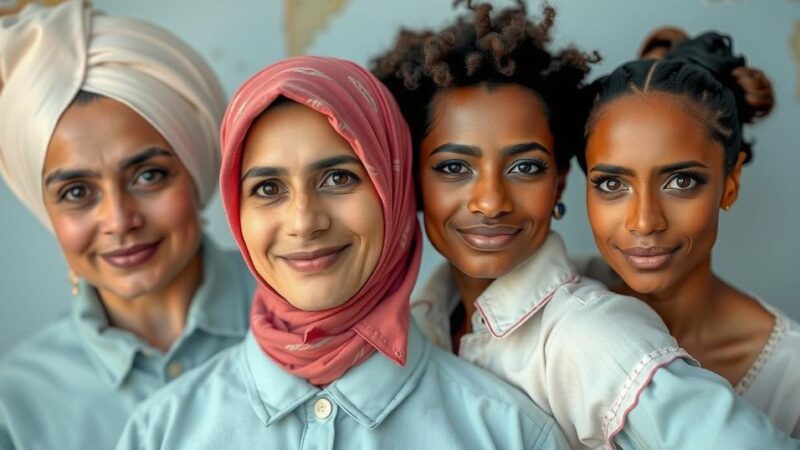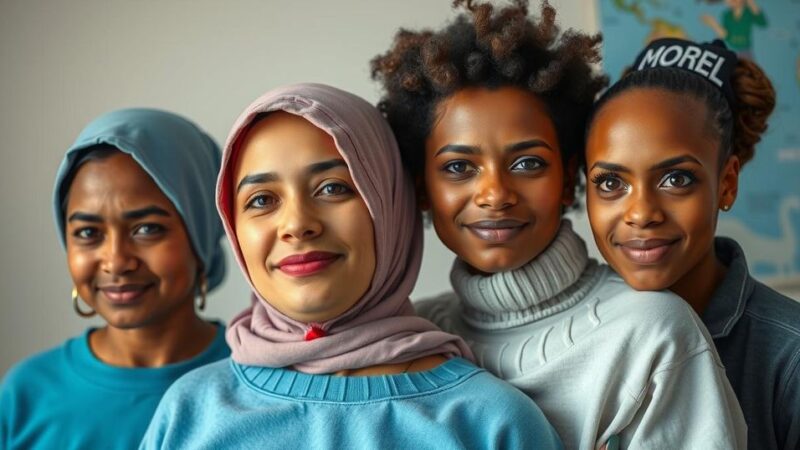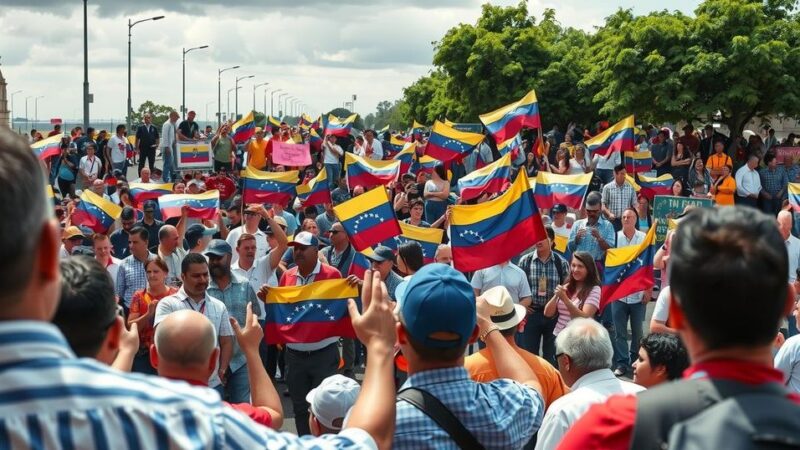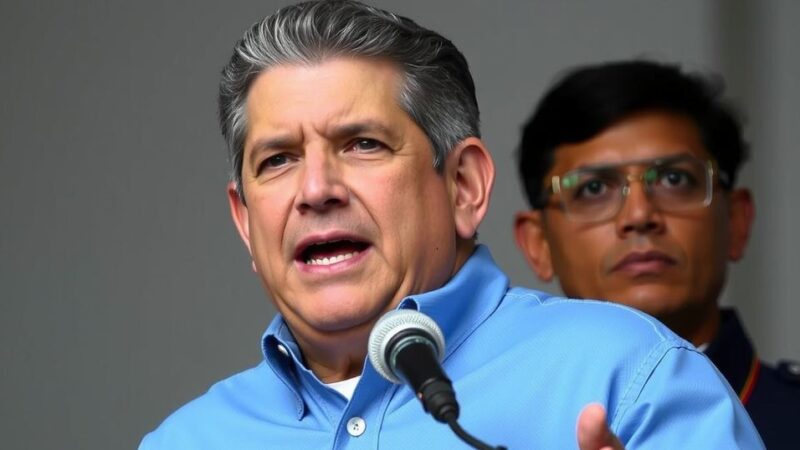Venezuelan President Nicolás Maduro was sworn in for a third term on Friday despite evidence indicating his opponent, Edmundo González, won the election. Protests erupted following the election, highlighting allegations of electoral fraud and repression. María Corina Machado, a key opposition leader, faced detention by security forces prior to the protests, raising significant concerns over human rights violations in Venezuela.
On Friday, President Nicolás Maduro was inaugurated for a third six-year term in Venezuela, extending his repressive rule until 2031, despite widespread evidence indicating that his opponent, Edmundo González, won the recent election. The inauguration took place at Venezuela’s legislative palace, which was heavily secured by police and military personnel. Pro-Maduro supporters gathered in the vicinity, while protests erupted in Caracas, where anti-Maduro demonstrators demanded Gonzalez’s ascension to the presidency. Opposition leader María Corina Machado was reportedly detained and coerced into making videos before her address at the rally, heightening tensions further.
Maduro’s adversaries assert that electoral fraud and suppression characterized the election process. Although Maduro’s victory was declared by loyal electoral authorities, they did not provide detailed vote counts. Meanwhile, the opposition collected and published tallies suggesting that González received double the votes compared to Maduro. As international condemnation mounted regarding the election’s transparency, Maduro sought an audit from a loyalist-dominated high court, which reiterated his win without providing adequate verification.
Following the contested election results, widespread protests occurred across Venezuela, resulting in over 2,000 arrests and approximately 20 deaths. The government’s harsh crackdowns, including reports of torture in custody, exemplify its determination to maintain control amidst escalating opposition. Prominent figures, including U.S. President-elect Donald Trump, condemned the Maduro government and voiced support for opposition leaders. However, Maduro’s supporters dismissed allegations of a detention against Machado, framing them as part of a disinformation campaign.
The tension surrounding Maduro’s inauguration drew further scrutiny as several heads of state opted not to attend, with Colombian President Gustavo Petro citing human rights concerns. Given ongoing threats against González, his anticipated return from exile remains uncertain. Against this backdrop, the political landscape in Venezuela continues to be fraught with violence and repression, emphasizing the urgency for international attention and intervention.
Venezuela has faced significant political turmoil under Nicolás Maduro’s leadership, which has been marred by allegations of electoral fraud and systematic repression of dissent. The most recent election was characterized by a lack of transparency, with opposition parties being barred from participating, leading to widespread accusations of a fraudulent process. Protests against Maduro’s regime have become commonplace, highlighting the growing discontent and calls for democratic reforms. The situation is further complicated by international responses to the allegations of human rights violations and electoral malpractice, placing pressure on the Maduro administration.
In conclusion, Nicolás Maduro’s recent inauguration amid credible evidence of electoral fraud illustrates the ongoing struggle for democracy in Venezuela. The government’s repression of dissent and disregard for opposition voices highlight a deteriorating political climate. Despite widespread condemnation and support for the opposition from international leaders, the Maduro regime continues to assert its authority, raising serious concerns for the future of democratic governance in the country.
Original Source: wsvn.com

